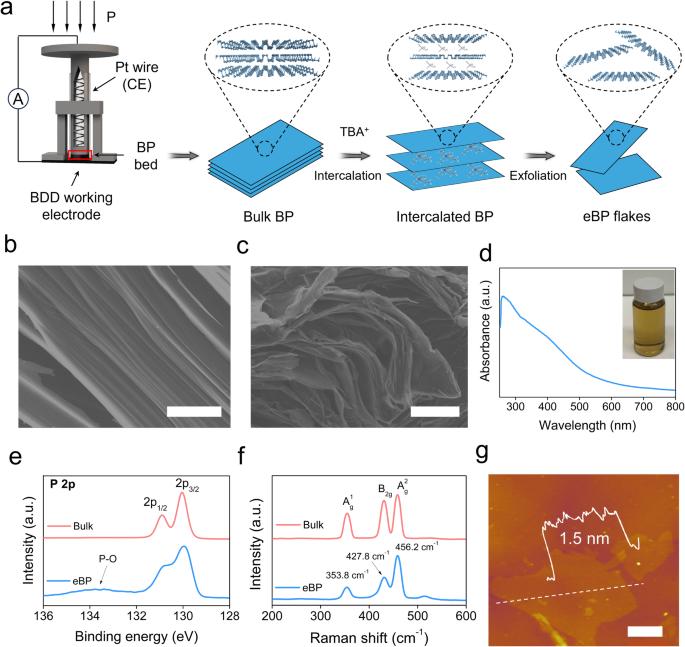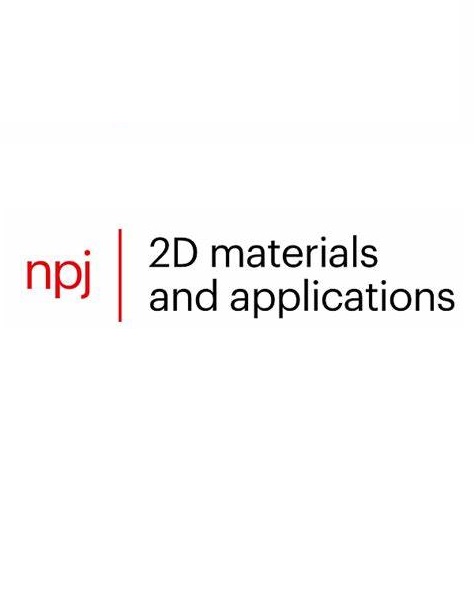用于稳定碳基过氧化物太阳能电池的大面积磷烯
IF 8.8
2区 材料科学
Q1 MATERIALS SCIENCE, MULTIDISCIPLINARY
引用次数: 0
摘要
碳基包晶石太阳能电池(c-PSCs)具有众多优点,包括易于制造、可组装柔性器件、制造成本低以及可大规模生产,因此受到越来越多的关注。然而,由于碳电极和包晶薄膜之间的界面接触不足,c-PSCs 存在空穴萃取受限和电荷载流子高重组的问题。在此,我们报告了利用电化学方法制备的大面积磷烯薄片作为空穴传输层(HTL),制备出具有高效率和优异稳定性的平面 c-PSCs 的情况。大面积磷烯显示出与过氧化物晶石完全一致的带能级,从而实现了高效的空穴萃取并减少了滞后行为。因此,带有磷烯 HTL 的器件在各种苛刻的测试条件下表现出卓越的稳定性,其功率转换效率超过 15%,开路电压为 1.082 V,这是迄今为止所报道的不使用传统空穴传输材料的 c-PSC 的最高值。本文章由计算机程序翻译,如有差异,请以英文原文为准。

Large-area phosphorene for stable carbon-based perovskite solar cells
Carbon-based perovskite solar cells (c-PSCs) have attracted increasing attention due to their numerous advantages including ease of fabrication, the potential of assembling flexible devices, low manufacturing costs as well as large-scale production. However, c-PSCs suffer from the limited hole extraction and high charge carrier recombination due to the inadequate interface contact between the carbon electrode and perovskite film. Herein, we report the fabrication of planar c-PSCs with high efficiency and excellent stability by employing electrochemically produced large-area phosphorene flakes as a hole-transporting layer (HTL). Large-area phosphorene shows well-aligned band energy levels with the perovskite, and thus led to the efficient hole extraction and the reduced hysteresis behaviour. Consequently, while exhibiting excellent stability under various harsh testing conditions, the devices with phosphorene HTL delivered a power conversion efficiency of over 15% with an open-circuit voltage of 1.082 V, which is the highest reported value for c-PSCs without traditional hole transporting materials to date.
求助全文
通过发布文献求助,成功后即可免费获取论文全文。
去求助
来源期刊

npj 2D Materials and Applications
Engineering-Mechanics of Materials
CiteScore
14.50
自引率
2.10%
发文量
80
审稿时长
15 weeks
期刊介绍:
npj 2D Materials and Applications publishes papers on the fundamental behavior, synthesis, properties and applications of existing and emerging 2D materials. By selecting papers with the potential for impact, the journal aims to facilitate the transfer of the research of 2D materials into wide-ranging applications.
 求助内容:
求助内容: 应助结果提醒方式:
应助结果提醒方式:


